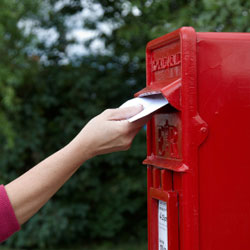by Lindsay Dahl, Deputy Director

Will you join us for a fun activity that will have a big impact in your community?
We’re building up to a busy spring and we would like to work with you on submitting local letters to your newspaper. “Letters to the editor” as they are often called, are a great way to show support for an issue you care about and educate people in your community.
What is a “Letter to the Editor”(LTE)?
A letter to the editor is a short 150-word letter from the reader to the newspaper. These letters are usually in response to an article or editorial that ran in the paper or something the reader cares about. Letters are printed as part of the Opinion page and let the editors know that their readership cares about an issue (in this case protections from toxic chemicals).
Is submitting a letter really worth the time?
Yes! There are three reasons why. First, if your letter gets published you will be able to educate and share your views on an issue with your local community. Second, the opinion page is the most read page of the newspaper. And finally, even if the letter doesn’t get printed, it shows the newspaper that their readers care about an issue.
“Letters that respond to an article recently printed in the newspaper, or a current event, are most likely to be printed.”
What makes a good LTE?
Letters that respond to an article recently printed in the newspaper, or a current event, are most likely to be printed. For example, you may have read about new products that contain the toxic chemical BPA, momentum for the Safe Chemicals Act or toxic chemicals used in your children’s school. Letters that tell a story and come from the heart are also good candidates for getting printed.
How to get started:
Find the opinion page for your local newspaper and read the requirements for submitting a letter. Most letters have to be less than 150 words and are submitted online or via email. If you want help finding the right newspaper to send your letter, please email me at [email protected].
Then write your letter! Sign up here.
What to write about:
- Open the letter by responding to an article in the newspaper or current event in your community related to toxic chemicals.
- Be timely. Papers are most likely to print a letter that responds to an article within a day or two of its publication.
- Are you a parent or mom-to-be? Tired of trying to find safe products for your family? Talk about that experience and the need for strong federal laws to protect your family.
- Be personal. Share a personal story about a loved one fighting cancer or exposures you may have from your community or workplace.
- Health concerns. We are all touched by the rise of cancer, learning and developmental disabilities, infertility etc. Talk about your concerns between toxic chemicals in our everyday lives and these health trends.
- Offer a solution. We know we can’t avoid toxic chemicals or shop our way to safety. Include a plug for the Safe Chemicals Act, which will put common sense limits on toxic chemicals.
Submission Details:
- Send in your letter, either via email or in an online form. If you email the letter in, please include the letter text in the body of the email, attachments can put your email directly into the spam filter.
- Include your name, address and phone number at the bottom of the email. They won’t print your address or phone number, but need to confirm you live in the area and will call you before printing the letter.
- Have fun and email me if your letter gets printed! We can promote it online through social media.
Do you read the paper online? Comments on articles about environmental health are another great way to raise your voice and help educate your community about the Safe Chemicals Act.
I hope you find this to be a fun and simple way to make a difference. Please email me at [email protected] if you want to get started but need more information. Please sign-up here to let us know you plan to write a letter.
Some examples of published letters:



